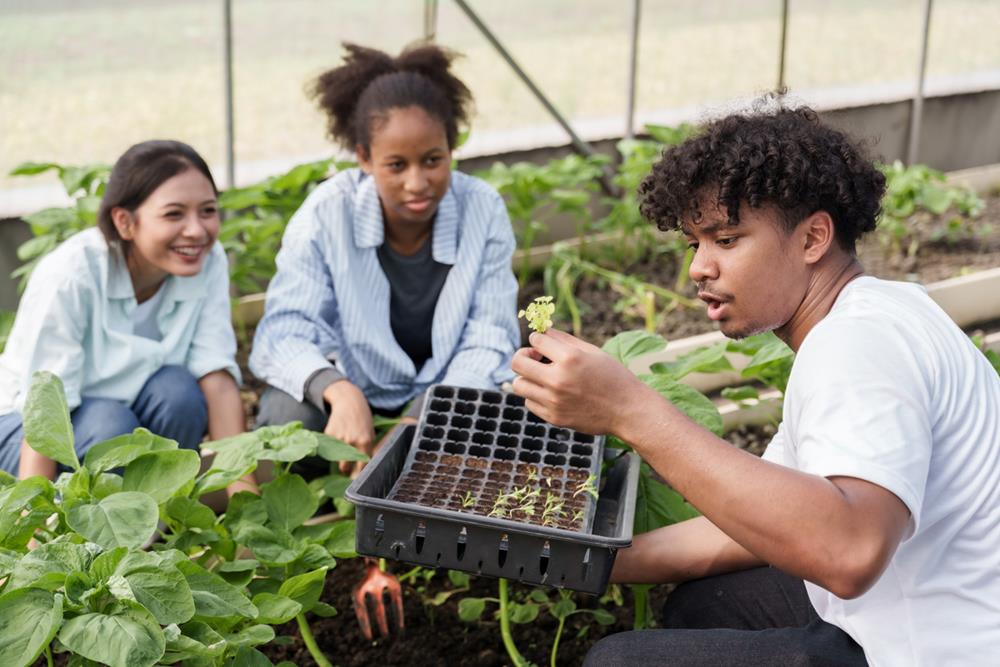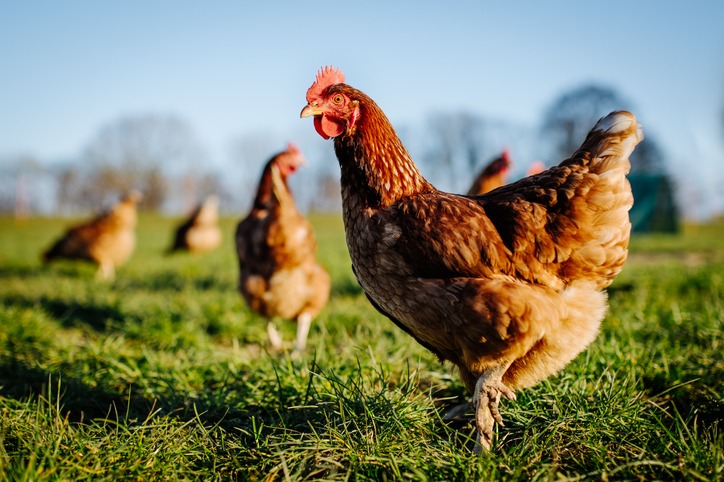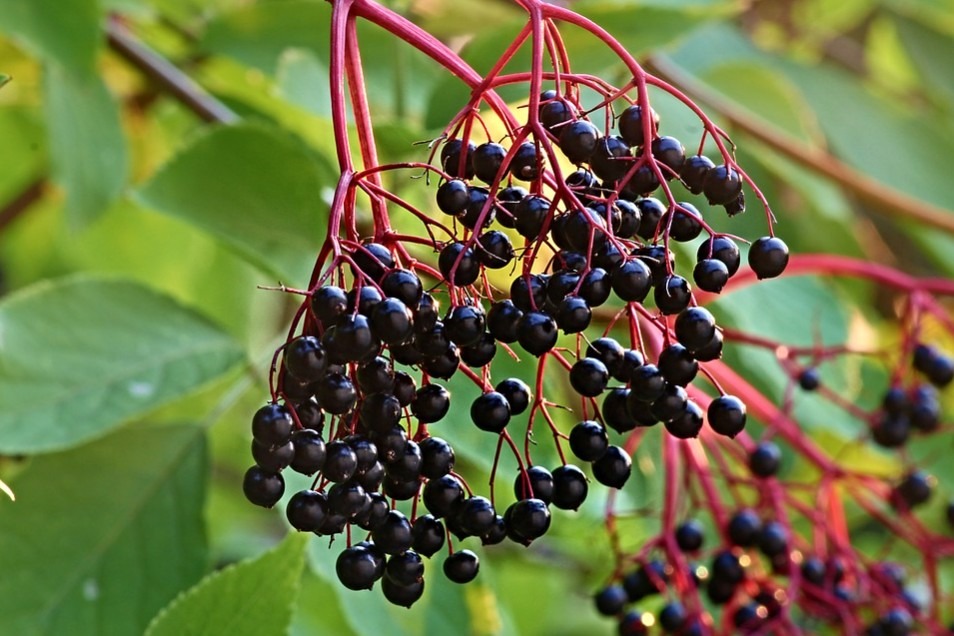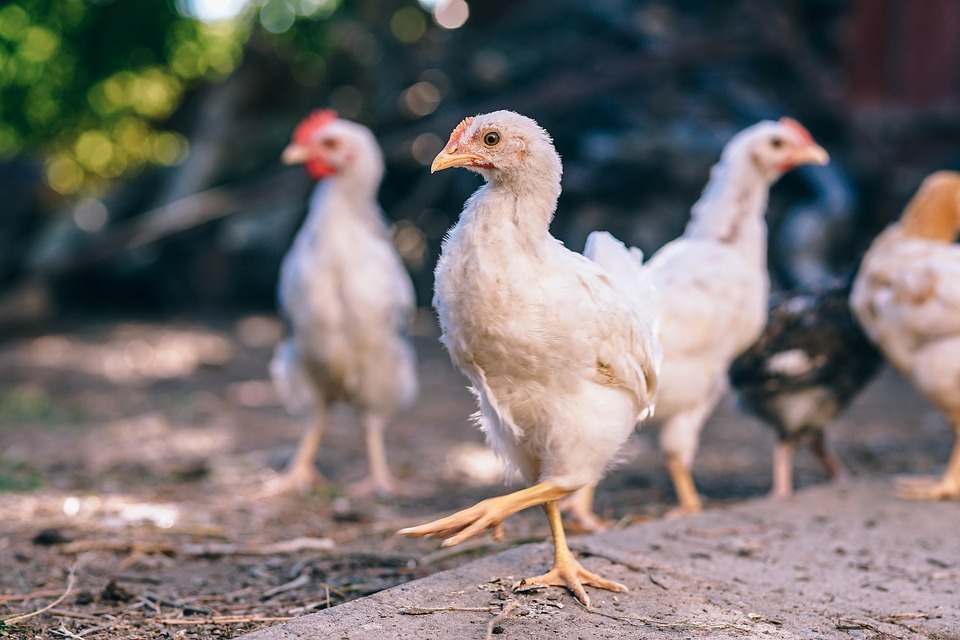Austin Workshops: From Permaculture to Backyard Chickens

Austin offers diverse sustainable living workshops year-round. You'll find extensive permaculture design courses with Kirby Fry through the Austin Permaculture Guild, hands-on sessions at the Festival Beach Food Forest, and practical backyard chicken keeping classes teaching coop design and flock management.
These programs help you adapt to Central Texas’s climate challenges through rainwater harvesting, drought-resistant gardening, and community-based food systems. Discover how these skills transform urban spaces into productive, resilient landscapes.
Permaculture Ethics and Urban Applications in Austin
While many urban sustainability movements come and go, permaculture stands apart through its three foundational ethics: Earth Care, People Care, and Fair Share. In Austin’s urban landscape, these ethics shape how you'll design your sustainable neighborhoods, minimizing ecological impact while enhancing community well-being.
Earth Care encourages you to prioritize natural processes in your backyard or community garden. People Care manifests through community engagement initiatives like shared green spaces and educational workshops that help ensure equitable access to urban agriculture. Fair Share principles promote sharing surplus yields from your garden through local food networks.
Austin’s permaculture workshops teach practical applications of these ethics, helping you implement principles like “Use Small and Slow Solutions” through manageable projects like microgardens and backyard chicken coops. These workshops also emphasize the importance of thoughtful observation of your specific environment before making design decisions.
Central Texas Climate Adaptation Techniques
Austin’s permaculture principles take on special significance as our region faces intensifying heat. You’ll need to adapt your garden and homestead as average temperatures trend higher and extreme-heat days become more frequent.
Rainfall projections are uncertain, and the overall amount is expected to remain relatively unchanged, even as heavier downpours and variability pose erosion risks—especially on high-plasticity soils near floodplains. Incorporate organic matter and mulch to improve moisture retention as soils dry out.
Regular soil monitoring allows you to respond dynamically to changing conditions. Consider installing rainwater harvesting systems and greywater reuse to mitigate drought impacts. For your backyard chickens, improve coop ventilation and add shade structures to reduce heat-stress mortality.
Nature-based solutions like native plantings and small wetland features offer powerful tools for buffering these climate extremes, aligning with the city’s Heat Resilience Playbook guidance to reduce heat exposure in neighborhoods.
Design Courses with the Austin Permaculture Guild
Looking to deepen your permaculture knowledge in Central Texas? The Austin Permaculture Guild offers design courses twice yearly—spring and fall—in a flexible six-weekend format that accommodates busy schedules.
Led by veteran instructor Kirby Fry, the curriculum blends classroom time with hands-on experiences at local teaching sites. You’ll master permaculture principles for food systems, water harvesting, and soil health tailored to Austin’s environment.
Course schedules include site assessments where you'll create scaled permaculture design maps for residential or community spaces. Students consistently describe the experience as transformative, building a supportive solutions-focused community.
Upon completion, you’ll earn a Permaculture Design Certificate (PDC), a widely recognized credential for consulting and community projects with local organizations.
Hands-On Food Forest Projects in Downtown Austin
The Festival Beach Food Forest stands as a pioneering urban oasis, transforming about two-thirds to three-quarters of an acre of public parkland along Lady Bird Lake into an edible landscape where anyone can forage freely. This permaculture-designed space features fruit and nut trees with hundreds of understory plants.
You’ll find numerous opportunities for community engagement through volunteer workdays, cooking classes, and plant walks. The project embodies Commons principles that reduce access barriers—no fences means everyone belongs. Its community leadership includes early organizers such as Jodi (Jody) Lane, and the site continues to expand as a demonstration for climate-smart urban food systems.
Beyond providing food, the forest offers ecological benefits—mitigating heat, improving air quality, and supporting wildlife—while documenting strategies others can replicate in their communities.
Backyard Chicken Keeping for Urban Homesteaders
While community food forests create shared abundance on public land, many Austinites bring sustainable food production home through backyard chickens. Interest continues to grow across the city.
Austin’s workshops cover essential skills including coop construction with predator-resistant features and urban predator mitigation. You’ll learn how to maintain small flocks well suited to city living. Before starting, research local rules and HOA restrictions: Austin allows backyard chickens in most residential areas with setback and sanitation requirements, and roosters are subject to noise/nuisance rules even where permitted.
Beyond fresh eggs, your chickens offer multiple benefits: natural pest control, garden fertilization, and meaningful companionship. Check current Title 3 (Animal) provisions and city guides to confirm coop placement and best practices.
Water Harvesting and Drought-Resistant Strategies
Living in Austin’s semi-arid climate requires innovative approaches to water management, especially as drought conditions become more common. You’ll learn techniques like swales and keyline design that spread water from valleys toward adjacent slopes, increasing soil infiltration across your property.
Workshop participants conduct water audits to identify natural flow patterns before implementing harvesting systems. You’ll discover how to work from high points downward, starting with simple rain barrels and progressing to more complex strategies. These rain barrels need proper first-flush diversion to avoid contamination.
For smaller spaces, you’ll explore greywater recycling paired with strategic placement of drought-resistant plants. By combining rock trenches with revegetation and avoiding channelization, you’ll create a landscape that captures, holds, and slowly releases moisture—turning your yard into a water-wise oasis even during Austin’s hottest months.
Community Herbalism and Medicinal Plant Workshops
Austin’s community herbalism scene offers diverse opportunities to explore medicinal plants through hands-on workshops for all experience levels. You’ll find expansive programs like Wild Texas Herbalism / Foundations of Herbalism with the Sacred Journey School of Herbalism (Ginger Webb), and Ace of Cups’ immersive 200-hour training—both emphasizing sustainable harvesting in local ecosystems.
Immune-support workshops at local arts and community spaces teach you to craft herbal elixirs using honey, vinegar, and local herbs—perfect for seasonal wellness. Meanwhile, cultural plant knowledge thrives through organizations like Zilker Botanical Garden and local grassroots groups that preserve traditional teachings.
Community engagement flourishes through the Austin Herb Society’s monthly talks and the Zilker Herb Garden, where you can explore medicinal and culinary herbs while connecting with fellow plant enthusiasts.
Career Pathways in Sustainable Design and Consulting
Why is sustainability becoming one of Austin’s promising career fields? The region’s environmentally conscious culture fuels growth across renewable energy, green building, and ESG/sustainability services.
Launching your green consulting career requires:
- Technical expertise in areas like climate risk analysis or sustainable building design
- Knowledge of environmental regulations and ESG frameworks
- Project management skills coupled with client-relations capabilities
Whether you’re seeking a leadership role or beginning as a specialist, Austin’s public- and private-sector initiatives create numerous pathways. Consider targeted certifications to boost employability, including circular-economy coursework for helping local businesses shift from linear to more sustainable models.
Conclusion
You’ve discovered the diversity of Austin’s sustainability workshops that equip you for climate-resilient living. Whether you’re digging into permaculture design, raising backyard chickens, or harvesting rainwater, you’re joining a community of urban homesteaders transforming the city one yard at a time.
Don’t wait—your sustainable journey starts with these accessible skills that prepare you for environmental challenges and career opportunities in Austin’s green future.




